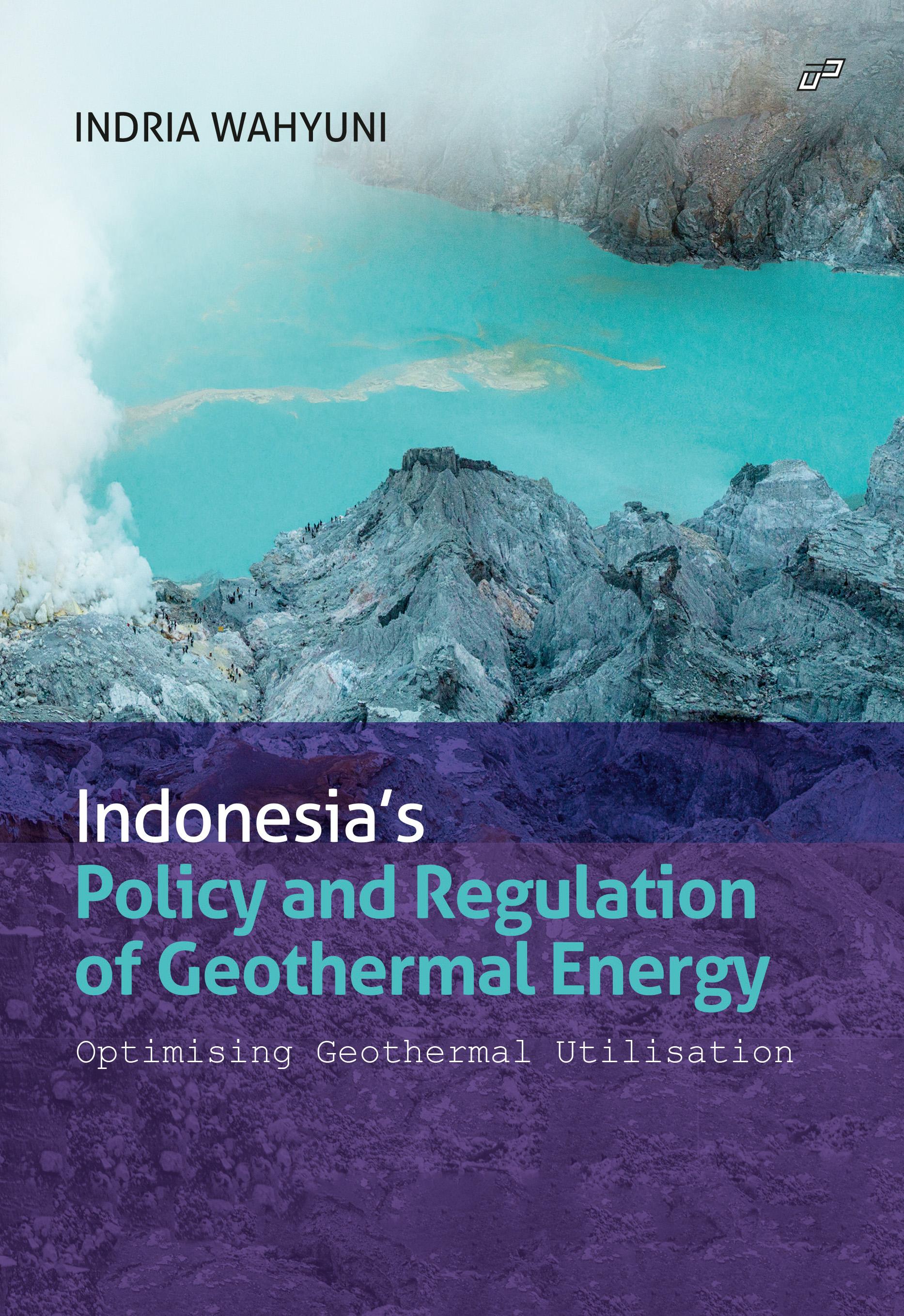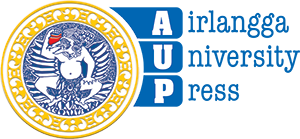INDONESIAʼS POLICY AND REGULATION OF GEOTHERMAL ENERGY : Optimising Geothermal Utilisation
Keywords:
natural resources, law, energy law, renewable energySynopsis
Indonesia’s natural resources: is it a blessing or a curse? This question was underlying my passion for focusing on energy law and policy. It was also a question that brought me to research pathways in energy law-related issues. I want to prove that Indonesia’s natural resources could be a blessing, instead of a curse, if we can manage them in a suitable method by highlighting factors related to the utilisation. I have been focusing on this renewable energy issue since 2016. It was a further step from my previous research on fossil fuel management (coal). This book is based on my concern that Indonesia’s geothermal potential needs to be utilised at the maximum level. We have 40% of the world’s geothermal reserves as a consequence of being located in the ring of fire. Unfortunately, we can only utilise less than 10% of the geothermal potential in the country. Therefore, implicitly we have a problem with how to alleviate geothermal utilisation. Maximising geothermal utilisation will be beneficial for supporting Indonesia’s goal of achieving Net Zero Emission by 2060 or sooner, and a sustainable energy transition.
The lack of academic references on geothermal law is my primary motivation to write this book to provide insight for the academic world, lecturers, students, activists, government officials and the public interested in energy issues, particularly geothermal. This book will provide comprehensive references in geothermal law and policy, including a global perspective of energy, geothermal potential in Indonesia, borderless concept of geothermal management, challenges in geothermal utilisation in the country, and a comparative perspective of geothermal utilisation in New Zealand. It also highlighted reformulation geothermal legal formation.
Downloads
References
Alder J and Wilkinson D, Environmental Law and Ethics (Macmillan Law Masters, Macmillan Press Ltd. 1999).
Anchustegui IH and Bergqvist C, ‘The Role of State Aid Law in Energy’ in Hunter TS and others (eds), Routledge Handbook of Energy Law, vol 1 (Routledge 2020).
Asser D, ‘Audi et alteram partem: a limit to judicial activity’ in Lewis ADE and Ibbetson DK (eds), The Roman Law Tradition (Cambridge University Press).
Bartlett AG and others, Pertamina Indonesian National Oil (Amerasian Ltd 1972).
Bee OJ, The Petroleum Resources of Indonesia (Oxford University Press 1982).
Boer B, ‘Environmental principles and the right to a quality environment’ in Krämer L and Orlando E (eds), Principles of Environmental Law, vol VI (Elgar Encyclopedia of Environmental Law, Edward Elgar Publishing 2018).
Bonzon Y, Public participation and legitimacy in the WTO (Cambridge University Press 2014).
Brown MA and Sovacool BK, Climate change and global energy security: technology and policy option (MIT Press 2011).
Butt S and Lindsey T, The Constitution of Indonesia: A contextual analysis (Hart Publishing 2012).
Cavoski A, ‘Transnational environmental regulation and evolving approaches to compliance’ in Heyvaert V and Duvic-Paoli L-A (eds), Research Handbook on
Transnational Environmental Law (Edward Elgar Publishing 2020).
Cleveland CJ and Morris C, ‘Geothermal’, Handbook of energy, vol 2 (2014).
Colomer JM, ‘Institutional Design’ in Landmann T and Robinson N (eds), Handbook of
Comparative Politics (Sage 2008).
Craik N, The International Law of Environmental Impact Assessment: process, substance, and integration (Cambridge University Press 2008).
DiPippo R, Geothermal Power Plants: principles, applications, case studies and environmental impact (Fourth edn, Elsevier - Science Direct 2016).
Fabrikant R, Oil Discovery and Technical Change in Southeast Asia: Legal Aspects of Production Sharing Contracts in the Indonesian Petroleum Industry (Institute of Southeast Asian 1973).
Friedman W, The State and The Rule of Law in A Mixed Economy (Stevens Sons, London, 1971).
Friedrich J, International Environmental “soft law”: The Functions and Limits of Nonbinding
Instruments in International Environmental Governance and Law (Springer 2013).
Gerettson F.C., History of the Royal Dutch (vol.1)/ Geschiedenis der Koninklijke (The Royal Dutch Petroleum Company, The Hague, Netherlands 1958).
Gillespie A, International Environmental Law, Policy, and Ethics (Oxford University Press 2000).
Gouda F and Zaalberg TB, American Visions of the Netherlands East Indies/Indonesia: US Foreign Policy and Indonesian Nationalism 1920-1949 (Amsterdam University Press 2002).
Hofheimer K, ‘The good governance agenda of international development institutions’ (The Old Dominion University 2006).
Hunter A, ‘The Indonesian Oil Industry’ in Bruce Glassburner (ed), The economy of Indonesia, selected reading (Cornell University Press, 2007).
Hunter T, ‘Access to petroleum under licensing and concession system’, Regulation of the Upstream Petroleum Sector: A Comparative Study of Licensing and Concession Systems (Edward Elgar Publishing 2015).
Hunter T, Regulation of the Upstream Petroleum Sector: A Comparative Study of Licensing and Concession Systems (Edward Elgar Publishing 2015). Lajserowicz J, Oil Sales Contract: in the Oil and Gas Production Contract (Sweet and Maxwell).

BISAC
- LAW034000 Law / Environmental
Published
Series
License

This work is licensed under a Creative Commons Attribution-NonCommercial-ShareAlike 4.0 International License.







